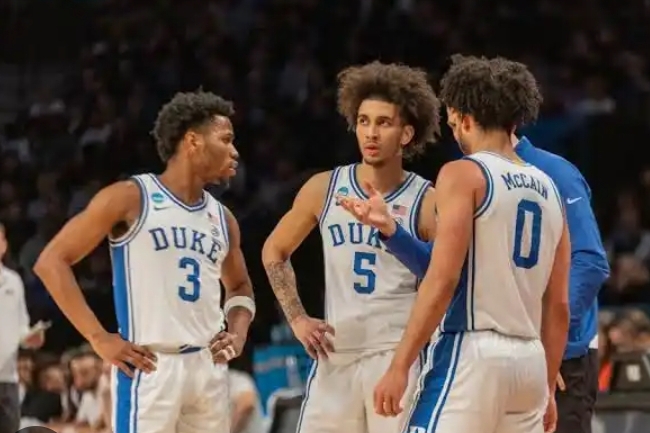Dark Money Scandal Rocks Duke: NCAA Verdict Sends Shockwaves Through College Basketball
One of college basketball’s most iconic programs is now at the center of an unfolding controversy that could leave lasting damage. The NCAA has officially concluded its investigation into alleged “dark money” funding connected to Duke Men’s Basketball, releasing a verdict that has sent shockwaves throughout the sport.
According to sources close to the investigation, the probe centered around undisclosed financial ties between Duke’s NIL (Name, Image, and Likeness) collective—reportedly operating under the banner of the One Vision Futures Fund—and high-level private donors with connections to recruiting activity. The fund, which has maintained an unusually low profile, came under scrutiny for its opaque operations and lack of public transparency compared to other major college programs’ NIL entities.
While the NCAA stopped short of issuing a postseason ban, it did impose sanctions including scholarship reductions, increased oversight of financial operations tied to recruiting, and mandatory compliance reviews over the next two seasons. A strongly worded statement from the NCAA cited “a concerning lack of institutional control regarding third-party donor engagement.”
This marks one of the most high-profile NIL-related penalties to date—coming at a time when the college sports world is still struggling to adapt to the rapidly changing landscape of athlete compensation.
Duke University released a brief statement in response to the verdict, saying:
“We take these matters seriously and are committed to full transparency and compliance moving forward. While we disagree with certain elements of the NCAA’s findings, we will adhere to the corrective measures outlined and continue to support our student-athletes with integrity.”
The fallout could have ripple effects well beyond Durham. Head Coach Jon Scheyer, already under pressure following a season that fell short of expectations, now faces a critical period not just on the court—but in terms of leadership and damage control off of it.
Critics argue that the very nature of the NIL era has made it difficult to distinguish between fair compensation and unethical influence. Others see this as a warning shot to elite programs across the country that even the biggest names aren’t immune to accountability.
Whether this marks a turning point for Duke—or just the tip of a deeper problem in college sports—remains to be seen. But one thing is clear: the game has changed, and no program, not even one built by a legend like Coach K, is above scrutiny in this new era.

